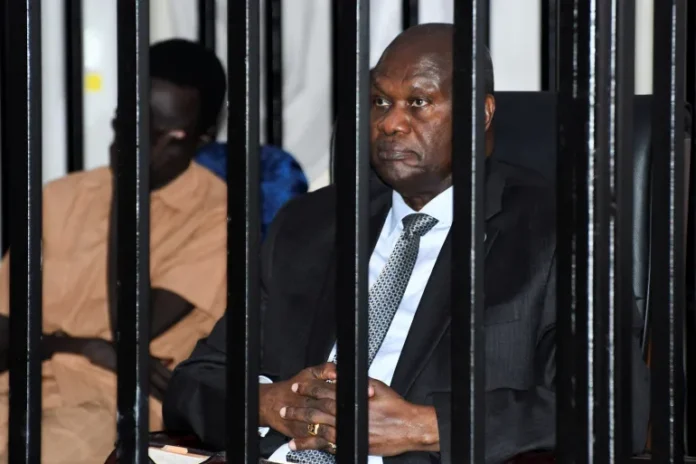A court in South Sudan on Wednesday halted the live broadcast of the trial of Riek Machar, the former deputy to President Salva Kiir Mayardit, who is facing charges of treason in a case that raises fears of a return to civil war.
Machar and seven other defendants were scheduled to testify on Wednesday, but the court ruled that the video livestream, which had been available in earlier sessions, must be stopped to protect witnesses.
An eyewitness present in the courtroom said that testimonies of four of the defendants were read out before the court agreed to a prosecution request to adjourn the session, with Machar’s testimony not among those heard.
The prosecution stated it would present documents and physical evidence linking Machar and the other defendants to an attack in which the ‘White Army,’ composed of young fighters from Machar’s Nuer tribe, seized a military base in Nasir in the northeast of the country.
In his statement, former oil minister Bot Kang Chol, one of the accused, said he had conveyed a message from Machar to the ‘White Army’ urging them not to fight.
The trial will resume today Friday.
Machar’s indictment on September 11 for murder, treason, and crimes against humanity—followed just hours later by a presidential decree removing him from office—has raised fears of a new conflict nearly seven years after a civil war between his supporters and those of President Salva Kiir that killed at least 400,000 people between 2013 and 2018.
A 2018 peace agreement ended the bloody conflict and established a power-sharing arrangement between the two sides. However, following the charges, Machar’s supporters have called for military mobilization to achieve ‘regime change’ in South Sudan, which gained independence from Sudan in 2011.
Last week, the United Nations reported that more than 1,800 civilians had been killed in South Sudan between January and September, amid sharply rising political tensions.
In September, the UN also issued a report accusing the government of looting billions of dollars in oil revenues since independence, while providing little in the way of basic services such as healthcare and education.
Source: AFP”


